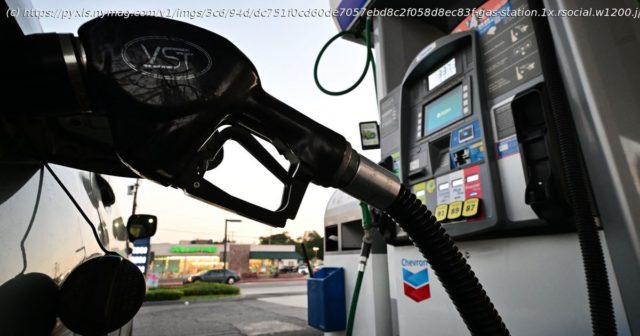The Saudi Arabia-led cut in OPEC+ oil production — which is driving up gas prices and ignores U.S. pleas to isolate Russia — may not be a deliberate “October Surprise” aimed at hurting Democrats, but it’s still screwing over Biden.
Earlier this month, the world’s largest oil-producing countries agreed to significant cuts in production as a means of keeping oil prices high as the global economy faces a potential recession in the coming year. The group known as OPEC+, which includes both the OPEC countries and several other petroleum producers not formally in the global oil cartel, said it would cut production quotas by 2 million barrels per day starting in November. The decision, led by top oil exporter Saudi Arabia along with other Gulf countries, was also seen as a slap in the face to President Joe Biden, whose administration had been frantically lobbying the Saudis and other Gulf allies to maintain or increase output and allow prices to continue to fall.
The OPEC move doesn’t mean production totals will fall by 2 million barrels exactly, as many countries were already not meeting their quotas, but it is expected to reduce global daily output by about 2 percent and put upward pressure on already high fuel prices in the U.S., forcing drivers to pay an additional 15 to 30 cents a gallon for gasoline. The decision will also have an impact on Europe, which is already facing high energy costs due to the cutoff of Russian gas exports. The International Energy Agency warned that higher oil prices could be “the tipping point for a global economy already on the brink of recession.”
Biden had hoped for cooperation from Riyadh to help starve Russian president Vladimir Putin’s war machine, which is largely funded by hydrocarbon sales, and further hinder his invasion of Ukraine (Russia’s deputy prime minister, who is under U.S. sanctions, was present at the OPEC+ meeting in Vienna). And of course, Biden wanted gas prices to be going down, not up, in the lead-up to November’s midterm elections.
The insult to Biden came just a few months after the president visited Saudi Arabia and exchanged an infamous fist bump with Crown Prince (and newly appointed prime minister) Mohammed bin Salman. That gesture of friendship with a brutal tyrant was readily interpreted as a nasty bit of realpolitik, with Biden bowing to the fact that he needed Saudi Arabia to keep the oil flowing to keep both inflation and Russia in check. On that visit, Biden secured an understanding from Saudi Arabia and its junior partner, the UAE, to increase production by a total of about 1.25 million barrels per day. The Saudis did ramp up production during the summer, when oil was over $120 a barrel, but backed off as prices began to fall again.
This month’s decision to sharply curtail oil production should not have been terribly surprising, considering that Saudi Arabia and the UAE in particular depend on oil revenues to fund their welfare states and economic-development projects, as well as to enrich their rulers. A global recession could put a deep dent in demand for oil, and if the petro-states continue to produce at their current levels, they might next year find themselves in a downward price spiral that would threaten their economic stability.
In an interview with Vox this week, Samantha Gross, director of the Energy Security and Climate Initiative at the Brookings Institution, pushed back on the widespread notion that this decision was primarily motivated by anything other than economics: “Middle Eastern states have their own interests, and they were genuinely concerned about rapidly falling oil prices and over-producing as the world was going into a recession. They did what they do in those situations: pulling back production.






